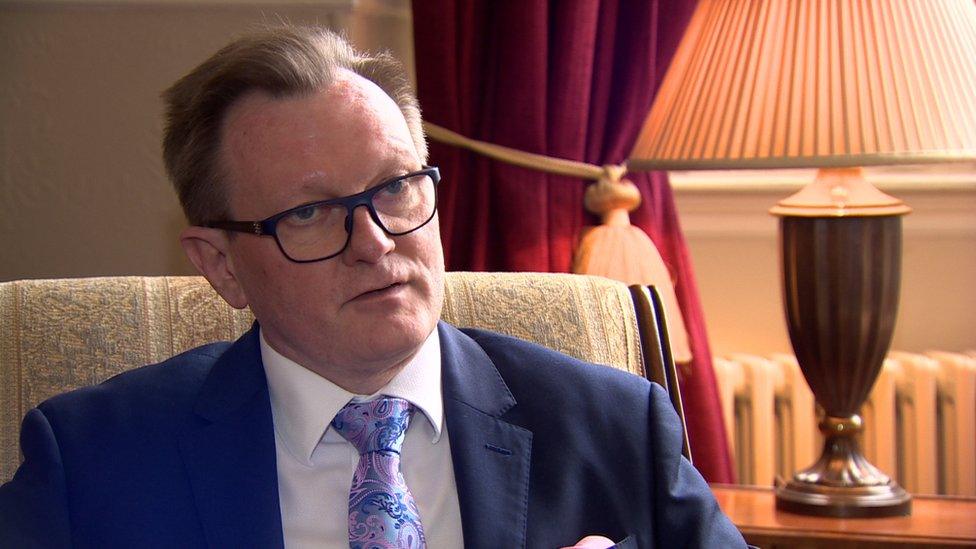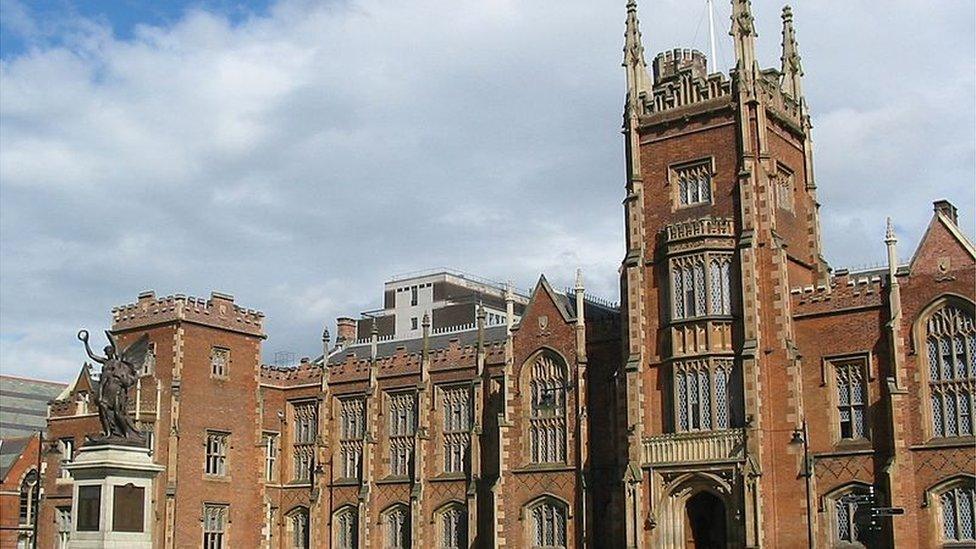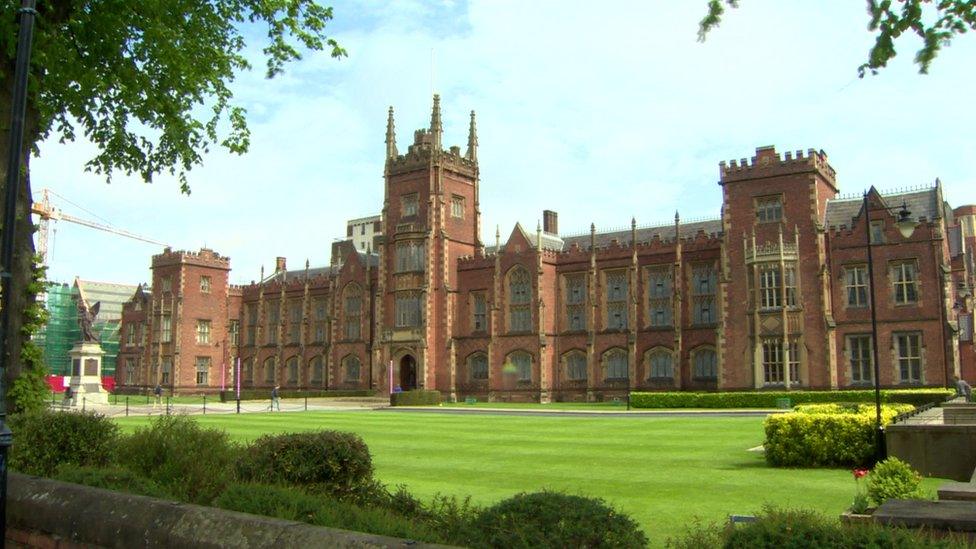Queen's University new vice-chancellor paid £300k
- Published

Prof Ian Greer is only the 13th vice-chancellor in Queen's history
Queen's University's new vice-chancellor is to be paid almost £300,000 a year.
Prof Ian Greer said that his salary was relatively low compared to leaders of other top universities.
In his first interview since taking the post, he told BBC News NI he wanted to "transform lives" in Northern Ireland.
Prof Greer said it was "frustrating" there was no Stormont executive given the major policy issues facing higher education.
He is only the 13th vice-chancellor in Queen's history and succeeds the later Prof Patrick Johnston, who died in 2017.
His basic salary is about £35,000 more than Prof Johnston's but it is not especially high in comparison with the leaders of some other UK universities.
However when pension contributions were taken into account, Prof Greer said his total package was similar to his predecessor's.
Prof Greer, who was born and educated in Scotland, had previously been the vice president of the University of Manchester.
'Beyond the reaches'
"I want to be open and transparent, so I am happy to say my basic salary is £295,000 per year," he said.
"There's an additional £6,000 for employer's costs and that's my total remuneration package."
"Benchmarked against the rest of the Russell Group, that's actually at the lower end of the range, but to put it in context Queen's is a global institution.
"It's a university competing on the global stage and as vice-chancellor of Queen's the job is diverse, it's complex and it goes well beyond the reaches of the university."
While the vice-chancellor currently sits on the university's remuneration committee, Prof Greer said he would not have any part in future decisions regarding his salary.

Despite the many challenges ahead, Prof Greer said he was excited to lead Queen's
On wider financial matters, he would not be drawn on whether student tuition fees here should rise from their current level of just over £4,000 per year.
In 2016, Queen's had proposed they rise to between £5,200 and £6,300 per year but Professor Greer said a wider debate on university funding was needed.
"What should happen is we should have a sustainable funding model for higher education," he said.
"That requires a well-informed debate at the executive level so it's important we do have an executive up and running as soon as possible to address policy issues like that.
"Of course it's frustrating we don't have an executive in place as there are major policy issues that we have to tackle.
"This isn't just about Brexit - it's about how we fund research and innovation to drive the economy, how we create that sustainable funding model for higher education, how we make a real difference to people's lives."
'Diverse culture'
Prof Greer is to continue Prof Johnston's policy of attracting more international students, and said he felt a target of 4,000 was "realistic".
There were 2,018 international students at the university in 2016-17.
"I think currently around 12% of our students are international, that contrasts with some of the larger universities in GB where it's up around 30% - so getting around 20% of our student population from the international space I think is achievable," he said.
"We want to have a diverse culture on campus, a diverse culture in Belfast, a diverse culture in Northern Ireland and to drive the economy."
However, he acknowledged that Brexit could pose challenges for universities in staff and student recruitment.
When asked about Queen's relationship with Union Theological College, which is run by the Presbyterian Church, he said it would be "premature" for him to comment ahead of a review which is to be completed in October this year.
'Retain that reputation'
Despite the many challenges ahead, Prof Greer said he was excited to lead Queen's.
He also said he was looking forward to working in partnership with Ulster University, the city council and politicians.
"We've got a higher education sector to be proud of in this country, and particularly here in Northern Ireland with Queen's and Ulster University and we've got to make sure that we retain that reputation," he said.
"It's a global reputation and I'd like to keep it that way.
"Of course there are significant challenges but overall I'm excited by the opportunity to make a real difference to Northern Ireland, a real difference to the economy, a real difference to the people.
"I want to transform people's lives here in Northern Ireland and see the economy flourish."
- Published26 July 2016

- Published22 July 2018
